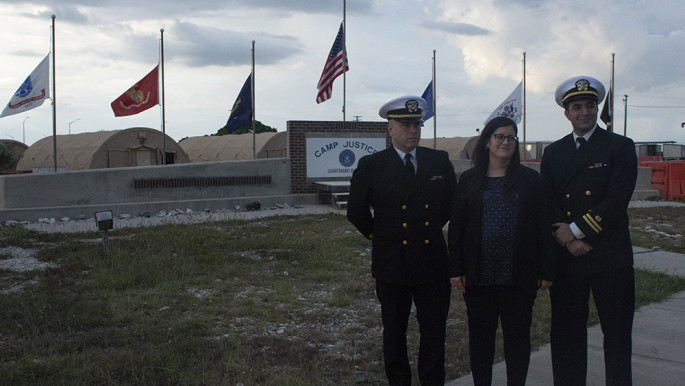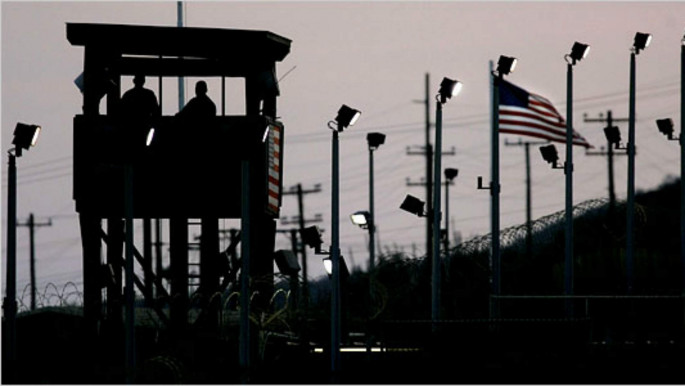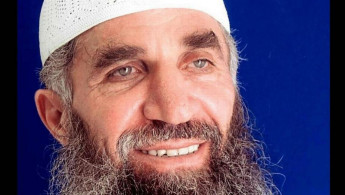Alleged al-Qaeda commander to get specially adapted holding cell at Guantanamo war court
Naval Station Guantanamo Bay, Cuba - Alleged al-Qaeda commander Abd al-Hadi al-Iraqi is to receive a specially adapted holding cell closer to the military commission's courtroom, the Guantanamo war court heard in an open session on Friday.
The cell will be wheelchair-accessible and equipped with a hospital bed, a sink, handrails, space for physical therapy, a secured telephone to the courtroom and potentially a monitor to view proceedings, according to testimony from Col. Steve Yamashita of Guantanamo's Joint Detention Group (JDG).
Hadi, 57, is accused by the US government of coordinating al-Qaeda's attacks on US troops in Afghanistan between 2002 and 2004.
He has had five surgeries for degenerative disc disease since September 2017, and suffers from chronic back pain and muscle spasms as a result.
If these measures are implemented, it would be a first for the Guantanamo military commission, and could see the adapted holding cell become an extension of the courtroom for the purposes of hearings and the trial.
Currently, the prisoner, who says his real name is Nashwan al-Tamir, has to travel between Camp 7 and the courtroom for hearings. At the 6-9 November 2018 session, the commission had to go into recess on its first day because he was experiencing muscle spasms.
His neurosurgeon has stated that the process of transporting him from his cell to the courtroom may exacerbate his pain, and that being required to stand, lie or sit for long periods may also cause some pain.
The holding cell would, according to Col. Yamashita, potentially allow Hadi to be held there overnight during commissions. It would also have enough space for privileged attorney-client meetings, and there would be a medical provider available, with troops monitoring him 24/7.
The judge, US Marine Corps Lt. Col. Michael Libretto, has been trying to establish what accommodations would be necessary in order to bring Hadi's case to trial.
In the most recent hearings, Hadi has sat in court in a padded chair, with a hospital bed, wheelchair and walker nearby.
 |
|
| The defendant's legal team: Navy Lt. Charles Ball, Pentagon-paid civilian lead Defence Counsel Susan Hensler and Navy Lt. Dahoud Askar [L-R] [Patty Nieberg] |
The holding cell is scheduled to be completed in March, though no indication was given in court of how soon it might be operational.
While Hadi did attend court on Monday 7 January - the first day of the current hearing - he was absent at Wednesday's session, reporting to the Assistant Staff Judge Advocate that he had taken a Valium that morning as he was in great pain, and that Monday had taken a lot out of him.
Normally, if a defendant does not wish to attend court and the judge does not require it, a detainee can voluntarily waive their presence by signing a declaration. But in this case, Hadi repeatedly stated that he wants to attend, and so did not sign the declaration.
On Wednesday, Judge Libretto overruled the defence's objection to continuing the session without him.
 |
|
| The perimenter fence surrounding detention Camps 5 and 6 [DoD handout] |
Hadi is currently held with the 15 other 'High Value Detainees' at Camp 7, the location of which remains top secret. He has two cells there, according to the Colonel; one has been adapted to better meet his needs, the other is unmodified. How freely he can move between the two cells, and the common areas is not clear.
In court on Friday, Defence Counsel Susan Hensler noted that her team's requests to view the cell at Camp 7, and to meet with their client at the recovery facility, had been denied, despite defence teams in other commissions having been granted permission to view Camp 7.
She also noted that the lights in the accused's cell had not been working from new year's day until that morning, something Col. Yamashita said he was not aware of.
A February 2018 army document states that existing facilities in Camp 7 have "far exceeded their service life expectancy, and are deteriorating rapidly". The Trump administration was seeking $69 million from Congress to rebuild it, money that was denied under the Obama administration aiming to shut down the detention facility, as well as by a Republican Congress in June 2018.
Katy Stone is in Guantanamo Bay to cover pre-trial hearings of alleged Al Qaeda operatives for The New Arab. Follow her on Twitter: @KatyRoseStone





 Follow the Middle East's top stories in English at The New Arab on Google News
Follow the Middle East's top stories in English at The New Arab on Google News


![22 Arab countries at COP29 have rejected the targeting of fossil fuels [Getty]](/sites/default/files/styles/image_330x185/public/2024-11/GettyImages-2184289638.jpg?h=199d8c1f&itok=ptHl5bec)